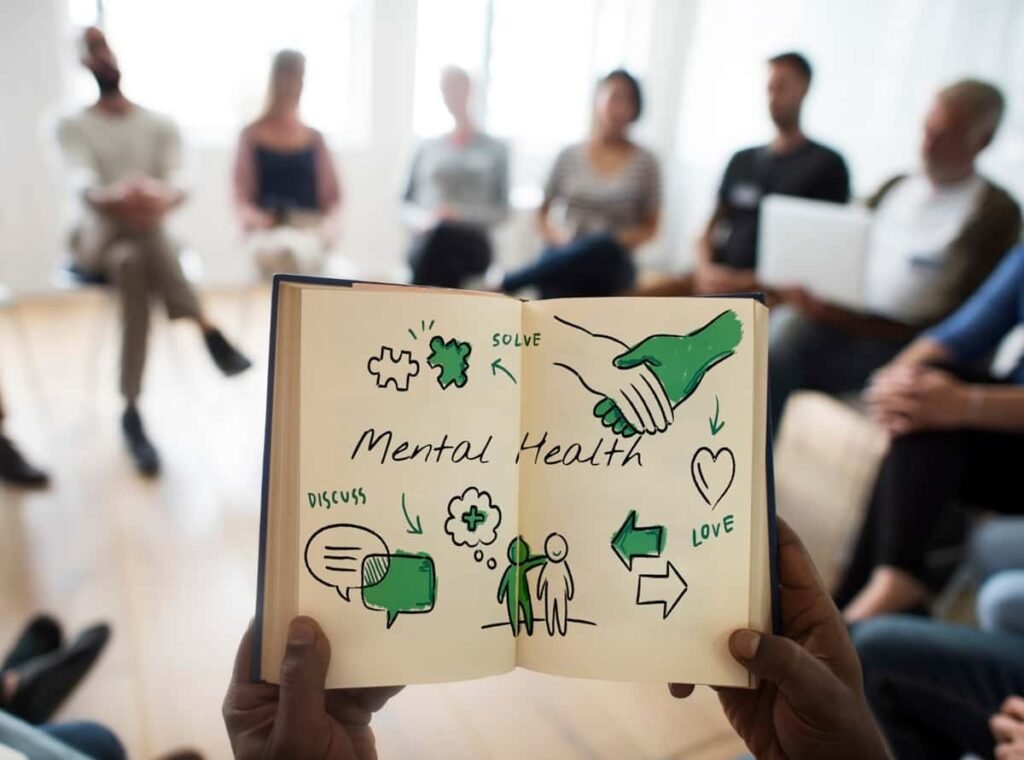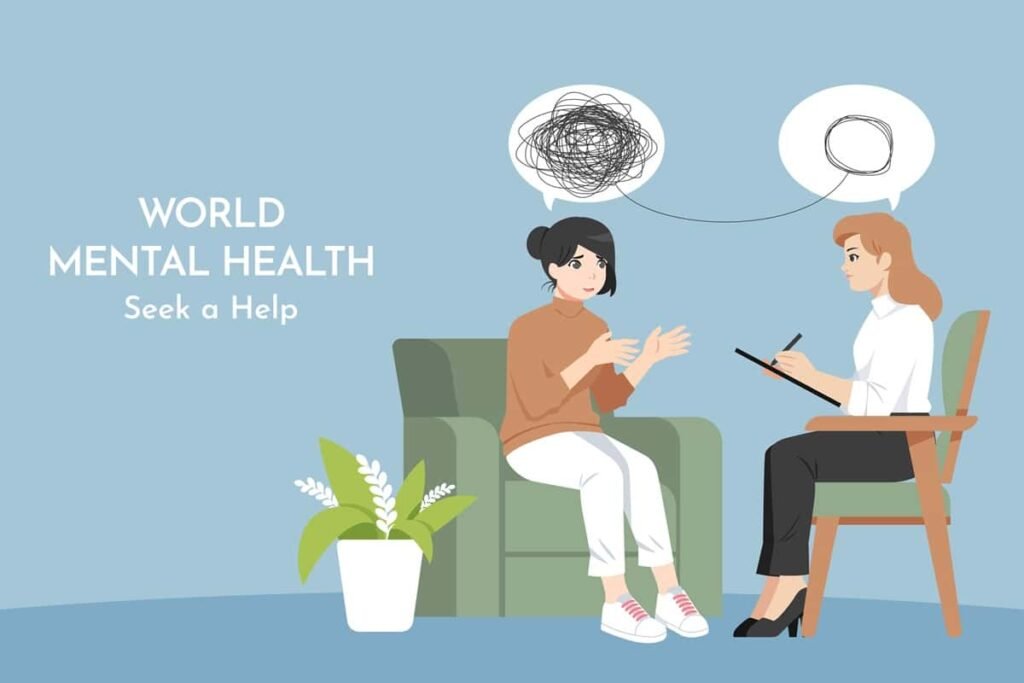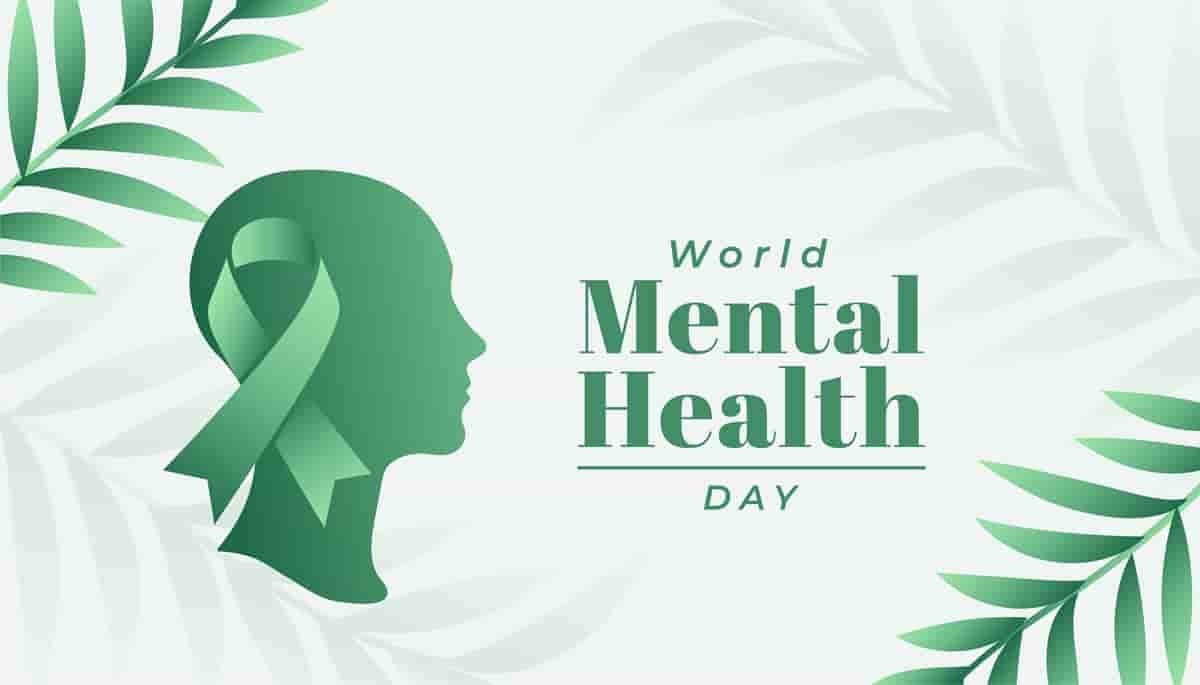Mental Health Awareness Worldwide: Looking Ahead to 2025. Mental health has undeniably moved from the shadows into the spotlight in recent years. While the journey towards widespread understanding, acceptance, and effective support is far from complete, significant progress has been made in raising awareness and dismantling the stigma surrounding mental illness. As we approach 2025, it’s crucial to assess the current landscape of mental health awareness globally, analyze the challenges that remain, and explore the opportunities for continued growth and innovation. This post will delve into the advancements achieved, the disparities persisting across different regions, and the potential impact of emerging technologies and evolving societal attitudes on mental health in the years to come.
The Rise of Mental Health Awareness: Where Are We Now?
The past decade has witnessed a significant shift in how mental health is perceived and discussed. Increased media coverage, celebrity endorsements, and grassroots advocacy have all contributed to a more open and accepting dialogue.

- Reduced Stigma: While stigma remains a formidable barrier, particularly in certain cultures, there’s a growing understanding that mental health conditions are legitimate illnesses, not personal failings. The “it’s okay to not be okay” message has resonated globally, encouraging individuals to seek help without shame.
- Increased Accessibility of Information: The internet and social media have democratized access to information about mental health. Online resources, support groups, and telehealth platforms have become invaluable tools for individuals seeking guidance and connection.
- Workplace Mental Health Initiatives: Many organizations are recognizing the importance of employee well-being and implementing mental health programs. These initiatives often include employee assistance programs (EAPs), mental health training for managers, and flexible work arrangements.
- Policy Changes and Legislation: Several countries have enacted policies and legislation aimed at improving mental healthcare access and protecting the rights of individuals with mental health conditions. This includes initiatives to increase funding for mental health services, integrate mental healthcare into primary care settings, and reduce discrimination.
- Educational Initiatives: Schools and universities are increasingly incorporating mental health education into their curricula, equipping students with the knowledge and skills to recognize mental health challenges in themselves and others, and to promote positive mental well-being.
Global Disparities in Mental Health Awareness and Access:
Despite the progress made, significant disparities persist in mental health awareness and access to care across different regions and populations.

- Socioeconomic Factors: Individuals from low-income communities often face significant barriers to accessing mental healthcare, including a lack of insurance coverage, limited availability of services, and transportation challenges.
- Cultural Beliefs and Stigma: In some cultures, mental illness is still viewed as a sign of weakness, a curse, or a punishment. This can lead to reluctance to seek help and can exacerbate the suffering of individuals experiencing mental health challenges.
- Geographic Location: Rural and remote areas often lack adequate mental healthcare services, forcing individuals to travel long distances or rely on telehealth options, which may not be readily available or affordable.
- Language Barriers: Language barriers can hinder access to mental healthcare for immigrants and refugees, especially if culturally competent services are not available in their native language.
- Lack of Mental Health Professionals: Many countries face a shortage of trained mental health professionals, particularly psychiatrists, psychologists, and social workers. This limits the availability of services and contributes to long wait times.
- Conflict Zones and Humanitarian Crises: Individuals living in conflict zones or experiencing humanitarian crises are at increased risk of developing mental health conditions. However, mental health services are often underfunded and underprioritized in these settings.
Challenges and Opportunities for 2025:
As we look ahead to 2025, it’s important to address the challenges that remain and capitalize on the opportunities to further advance mental health awareness and improve access to care.

Challenges:
- Bridging the Treatment Gap: A significant proportion of individuals with mental health conditions do not receive the treatment they need. This treatment gap is particularly wide in low- and middle-income countries. Addressing this requires increased investment in mental healthcare services, training of mental health professionals, and implementation of evidence-based interventions.
- Combating Stigma and Discrimination: Stigma and discrimination continue to be major barriers to mental healthcare access and can lead to social isolation and exclusion. Combating stigma requires sustained public awareness campaigns, education programs, and advocacy efforts.
- Addressing the Social Determinants of Mental Health: Mental health is influenced by a wide range of social determinants, including poverty, inequality, discrimination, and lack of access to education and employment. Addressing these underlying factors is crucial for promoting mental well-being and preventing mental illness.
- Integrating Mental Healthcare into Primary Care: Integrating mental healthcare into primary care settings can improve access to services and reduce stigma. However, this requires training primary care physicians in mental health screening and treatment, as well as developing effective referral pathways.
- Ensuring Equitable Access to Technology: While technology has the potential to improve access to mental healthcare, it’s important to ensure that it’s accessible and affordable for all individuals, regardless of their socioeconomic status or geographic location.
- The Impact of Global Events: Global events, such as pandemics, economic crises, and climate change, can have a significant impact on mental health. Addressing the mental health consequences of these events requires proactive planning and implementation of targeted interventions.
Opportunities:
- Leveraging Technology: Technology offers tremendous opportunities to improve mental healthcare access and delivery. Telehealth platforms, mobile apps, and virtual reality interventions can provide remote support, monitor symptoms, and deliver personalized treatment.
- Promoting Early Intervention: Early intervention is crucial for preventing mental illness from becoming chronic and debilitating. Investing in early detection and treatment programs, particularly for children and adolescents, can have a significant impact on long-term outcomes.
- Empowering Individuals and Communities: Empowering individuals and communities to take control of their mental health is essential for promoting well-being and preventing mental illness. This includes providing education, promoting self-care strategies, and fostering supportive social networks.
- Strengthening Collaboration: Collaboration among governments, healthcare providers, researchers, and community organizations is essential for addressing the complex challenges of mental health.
- Investing in Research: Continued investment in research is crucial for developing new treatments, understanding the causes of mental illness, and evaluating the effectiveness of interventions.
- Utilizing Data-Driven Approaches: Utilizing data analytics and machine learning can help identify trends, predict risk factors, and tailor interventions to meet the specific needs of individuals and communities.
- Focus on Prevention: Shifting the focus from treatment to prevention can reduce the burden of mental illness. This includes promoting healthy lifestyles, addressing social determinants, and providing mental health education.
- Integrating Cultural Sensitivity: Tailoring mental health services to meet the specific cultural needs of different populations is crucial for ensuring effectiveness and promoting engagement.
Looking Ahead:

As we approach 2025, the future of mental health awareness hinges on our collective efforts to address the challenges and capitalize on the opportunities outlined above. By prioritizing prevention, leveraging technology, addressing disparities, and fostering collaboration, we can create a world where everyone can access the mental healthcare they need to thrive. Increased awareness, coupled with proactive measures, can pave the way for a more mentally healthy and resilient global community. This includes focusing on treating illness, promoting well-being, and building resilience in all individuals. The journey is ongoing, but by working together, we can create a brighter future for mental health worldwide.
- 37 Best Netflix Series to Watch Right Now: Your Ultimate Binge-Watching Guide
- 13 Must-Do Holiday Traditions for Families: Building Memories that Last a Lifetime
- 19 Plant-Based Protein Sources Chart: Your Ultimate Guide
- News in Hindi From India
- How to lose weight faster | Sahil Sir
- How to Enjoy Life to the Fullest: A Guide to Embrace Every Moment!


